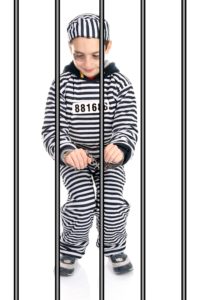
I have had to sit on this subject for 2 days as as it was connected to an incident that left me white hot with rage! All I could do was rant and rave with my colleagues who all agreed privately but pointed out they are often bound to work within this crazy system!
I worked with a perfectly normal 6 year old this week who is just beginning to sound out and recognise some words. He has a lovely sense of humour and is obviously a very active, creative child who will do well at school.
BUT he comes from a classroom where the levels may as well be inscribed on children’s wrists like those in POW camps! His parents were told the sad news- “Only at level 23!”
Up to level 23 in reading? What does this mean? Of course I know there are various prescribed lists of levels suitable for children with books that fit within these lists. Many of these lists are put together by publishers of particular reading schemes and teachers (searching for a sane, easier way of assessing) are grabbing at these levels and giving out comments such as “Oh dear! Your child is only at level 23- he should be at 30.”
Who said?
What about the fact that he has started his reading journey and now recognises all the single sounds, many digraphs and can sound out simple words?
What about the fact that he loves picture books, comprehends well and has great ideas for writing narratives?
Aren’t they things to celebrate for a 6 year old? But NO!
Because some children can master all their phonics at 5 years we now judge those who take a little longer.
This is utter madness and teachers know this deep down.
Evaluation is a complex process and cannot be pinned down to numbers like this.
You have to get to KNOW a child to evaluate them. Not only do you apply baseline testing, you have to observe, figure out their thinking patterns and watch them in action.
When we make these fast judgements we are lowering our standards as educators and behaving like teaching machines.
The results are sad kids with low self-esteem who already hate school at 6! At 6? Crazy!
I know some teachers are pushed to place kids against very questionable ranking scores but this causes unbelievable harm for children and parents.
We can do much better than this!
Now when I assess children and ask them how they think they are doing at school, they answer me like this,
“Oh Vicky- I am only at level 15.” When I ask them what that means they haven’t a clue and neither have I.
Let’s get back to solid, on the floor observation, talking to children, identifying learning styles, finding what they can do, running records and closely monitoring phonological awareness, word identification and fluency. I tell kids when they have problems and I make up plans to help them rather than giving out some meaningless score! We are teaching children- not machines!
What is happening is stupidity of the first degree and I cannot stand back and watch what is happening with a closed mouth.
Come on educators- speak your minds and parents- DEMAND to know exactly what these levels mean and why your child should have to be a carbon copy of some “idealised” robot child!

You are so right. Too many parents fall into the trap of believing everything the teacher says, sometimes even berating their poor child for their failings. Give the child a chance, some of us are slower on the uptake, especially at our earlier years, and I do not believe that this is any indication of adult success at any level.